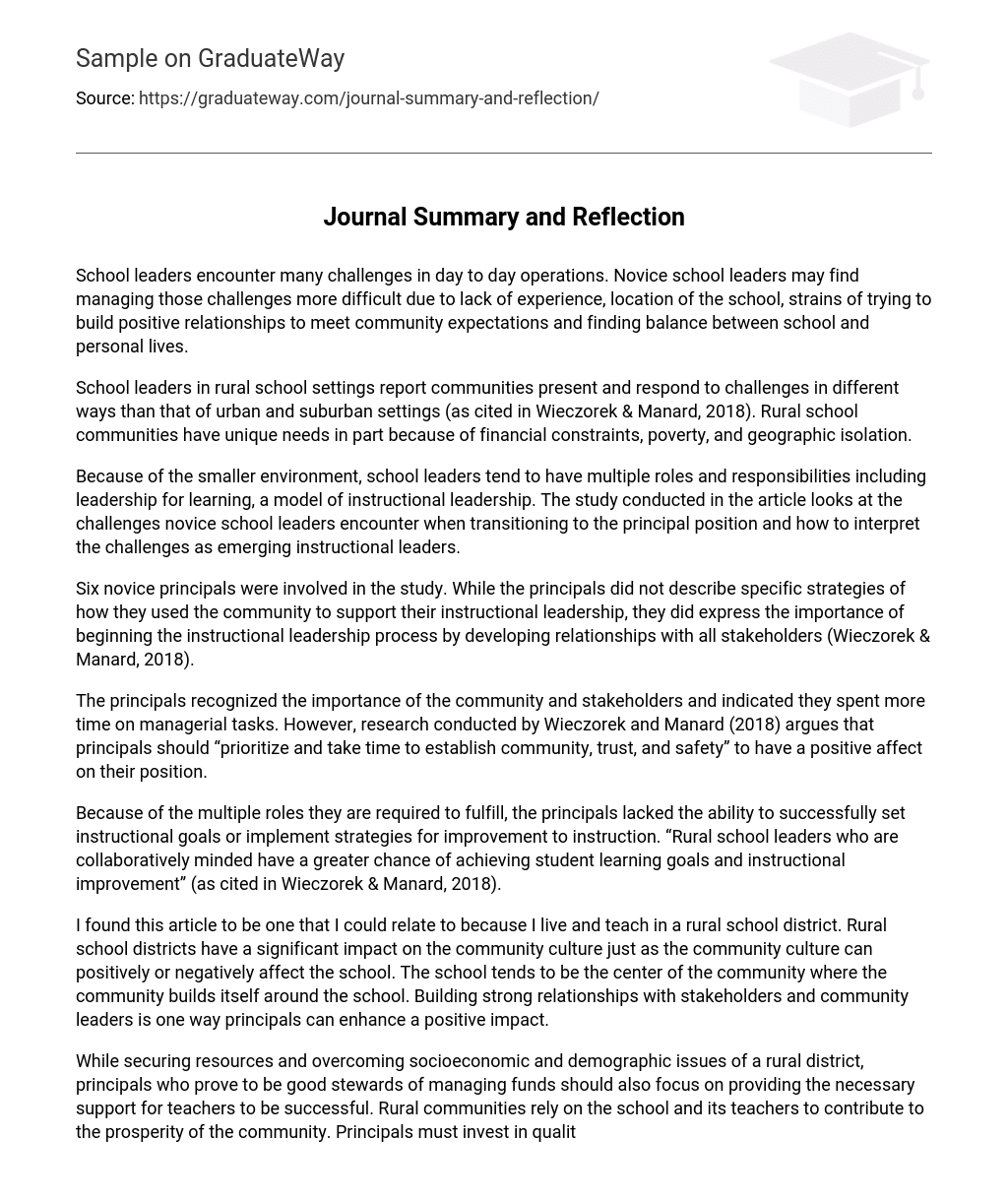School leaders encounter many challenges in day to day operations. Novice school leaders may find managing those challenges more difficult due to lack of experience, location of the school, strains of trying to build positive relationships to meet community expectations and finding balance between school and personal lives.
School leaders in rural school settings report communities present and respond to challenges in different ways than that of urban and suburban settings (as cited in Wieczorek & Manard, 2018). Rural school communities have unique needs in part because of financial constraints, poverty, and geographic isolation.
Because of the smaller environment, school leaders tend to have multiple roles and responsibilities including leadership for learning, a model of instructional leadership. The study conducted in the article looks at the challenges novice school leaders encounter when transitioning to the principal position and how to interpret the challenges as emerging instructional leaders.
Six novice principals were involved in the study. While the principals did not describe specific strategies of how they used the community to support their instructional leadership, they did express the importance of beginning the instructional leadership process by developing relationships with all stakeholders (Wieczorek & Manard, 2018).
The principals recognized the importance of the community and stakeholders and indicated they spent more time on managerial tasks. However, research conducted by Wieczorek and Manard (2018) argues that principals should “prioritize and take time to establish community, trust, and safety” to have a positive affect on their position.
Because of the multiple roles they are required to fulfill, the principals lacked the ability to successfully set instructional goals or implement strategies for improvement to instruction. “Rural school leaders who are collaboratively minded have a greater chance of achieving student learning goals and instructional improvement” (as cited in Wieczorek & Manard, 2018).
I found this article to be one that I could relate to because I live and teach in a rural school district. Rural school districts have a significant impact on the community culture just as the community culture can positively or negatively affect the school. The school tends to be the center of the community where the community builds itself around the school. Building strong relationships with stakeholders and community leaders is one way principals can enhance a positive impact.
While securing resources and overcoming socioeconomic and demographic issues of a rural district, principals who prove to be good stewards of managing funds should also focus on providing the necessary support for teachers to be successful. Rural communities rely on the school and its teachers to contribute to the prosperity of the community. Principals must invest in quality teachers who meet students in their current learning path, provide equitable instruction, and have high expectations.
Managing time between administrative duties and instructional duties is an essential practice that can prove to be a game changer in student achievement. As an effective instructional leader, principals should focus the majority of his or her time on instructional needs that will produce the best results. Principals should concentrate on the mission and vision of the school, collaborate with a leadership team, and use data to make instructional decisions.
Effective instructional leaders create professional learning communities and encourage teachers to take ownership and leadership roles. Building teacher capacity through professional development opportunities helps teachers execute the curriculum for higher student achievement.
Instructional leaders in rural school districts must be resourceful and lead with personal humility and professional will. Modeling a standard of excellence and using personal ambition are key factors to helping overcome obstacles that a rural setting may impose.





